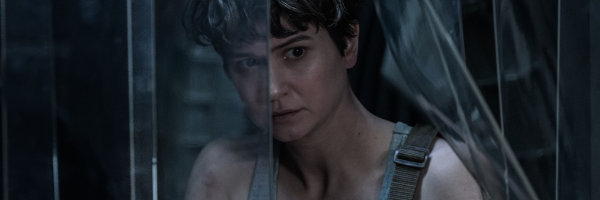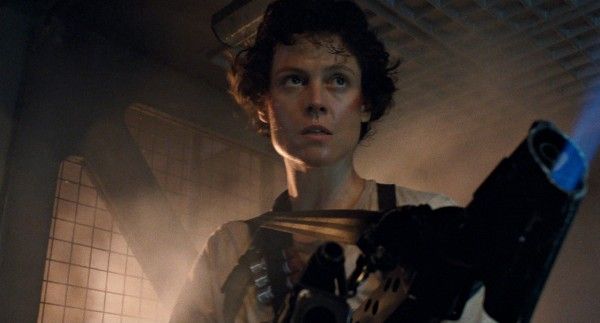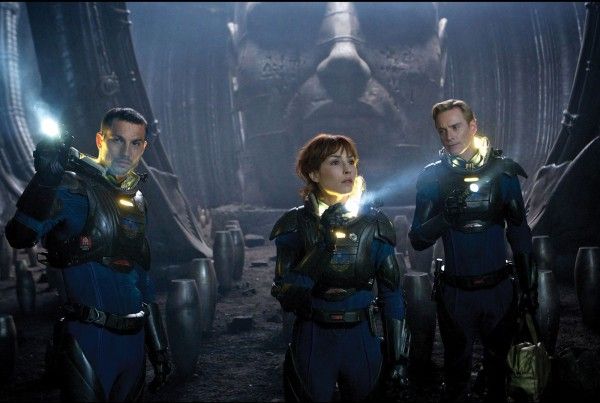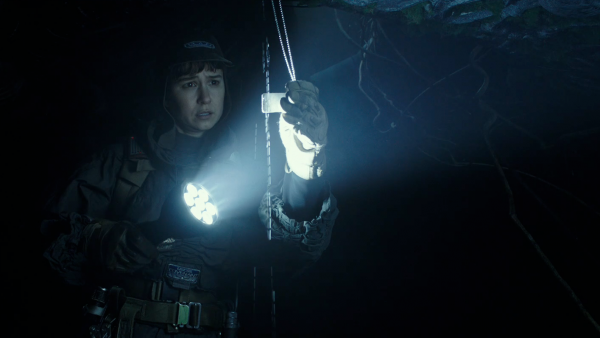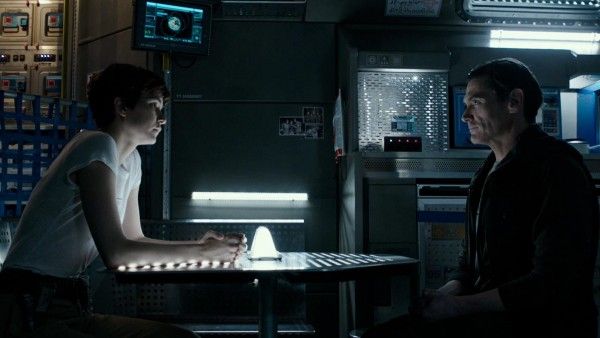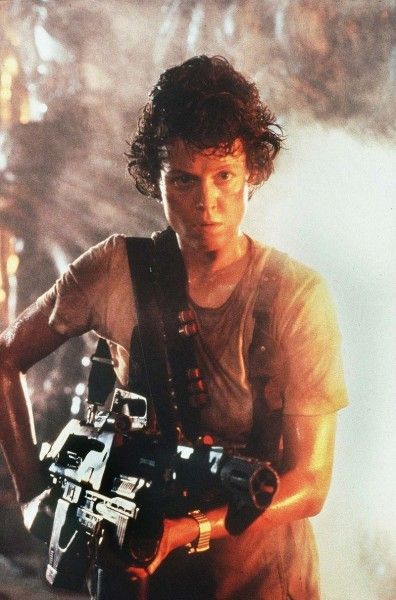Ellen Ripley (Sigourney Weaver) is one of the greatest action heroes of all-time. Even as the quality of the film surrounding her varies, the character remains a model of steely resolve, quick thinking, and surprising empathy. She’s everything we could want from a hero, and she’s been taken to hell and back due to her encounters with the xenomorph.
The franchise took her from “Survivor Girl” in Alien (although that term is a bit dismissive since Ripley is the smartest person on the crew from the start, and if they had followed her request to follow quarantine protocol, they’d all be alive except for poor Kane) to action hero in Aliens, and it’s clear that with Prometheus and Alien: Covenant, director Ridley Scott is trying to find a character that can follow in Ripley’s footsteps as a strong woman who survives against the alien.
Unfortunately, as we’ve seen with Prometheus and especially with Alien: Covenant, the only thing Elizabeth Shaw (Noomi Rapace) and Daniels (Katherine Waterston) have in common with Ripley is the lack of a Y chromosome. Rather than being the smart, capable heroes modeled by the franchise’s original heroine, Scott has created a couple of dupes whose only notable achievement is making it to the end of the elimination game.
Let’s start with Shaw. Shaw does have the distinction of being the only person to survive Prometheus (David’s head made it out alright, but he’s an android, not a person). However, when she gets to LV-223 and it’s not everything that she hoped for, she goes away and pouts before she later has to use the emergency abortion machine to get an alien out of her womb. Having not learned her lesson that David (Michael Fassbender) may not be the most trustworthy android ever made, she brings his head along for the ride as they both make a trip to the Engineer homeworld.
Even if you want to argue that Shaw couldn’t have made the journey on her own and needed David’s advanced intelligence to make the journey, why would she bother giving him a new body (this is setting aside where she even found a new body to give him)? Alien: Covenant works up a series of lies where David tells the Covenant crew that he loved Elizabeth because she was kind to him, but she died in the crash. It turns out that when they arrived on the Engineer homeworld, after David rained down a bioweapon on the population, he proceeded to kill and experiment on the person who saved his life.
While the temptation may be to blame David and his “Hey baby, wanna kill all humans?” programming, I also have to put some of the blame at Elizabeth’s feet. If a toaster tried to kill me, my impulse wouldn’t be, “Hey, let me figure out how to fix this toaster.” It would be, “I’m done with this murder toaster.” And for Ripley’s part, after she discovered Ash (Ian Holm) was an duplicitious android, her instinct wasn’t, “Let me fix him so I can get home.” Her instinct was, “Let me learn what I can from this thing and then turn it off.”
Daniels doesn’t fare much better. While Walter (Fassbender) is a more reliable model than David, the movie, through a painfully obvious and contrived series of events, has David take Walter’s place without Daniels being any the wiser until the very end of the movie. Scott’s attempt to deliver a bleak ending is wholly reliant upon turning Daniels—who, to her credit, is definitely smarter than Oram (Billy Crudup), but ultimately just goes along with his dumb decision—into a gigantic dupe.
And that’s really what Shaw and Daniels are in the end: dupes. They both think they can trust their android companions, the android companion turns out to be evil, and they suffer the consequences. Of course, if their characters weren’t so thinly drawn, they probably wouldn’t bother trusting the android in the first place, or would at least think twice before putting their lives in its hands.
It’s also an odd place to put those characters because they’re punished for trusting technology, but Scott seems to have the same preference. Time and again, he’s shown that he has little patience for humanity, but he’s absolutely enamored of technology. David is the character he clearly wants to follow, but he kills Shaw and has Daniels fall asleep screaming because they have the audacity to trust an android. Scott seems to want to have it both ways where we’re supposed to care about the female protagonist and her decisions, but then he wants to her to suffer a horrible fate because she trusted a machine.
The Alien prequels want Ripley’s legacy without doing any of the legwork of figuring out what made her an interesting character. Rapace and Waterston are talented actresses, so this isn’t a matter of casting. The problem is on the page, and rather than writing characters who challenge the status quo, find inventive solutions, and fight to survive, the Alien prequels have simply stopped at “female lead”, shrugged, and said, “Good enough,” when Shaw and Daniels clearly can’t hold a candle to Ripley.

